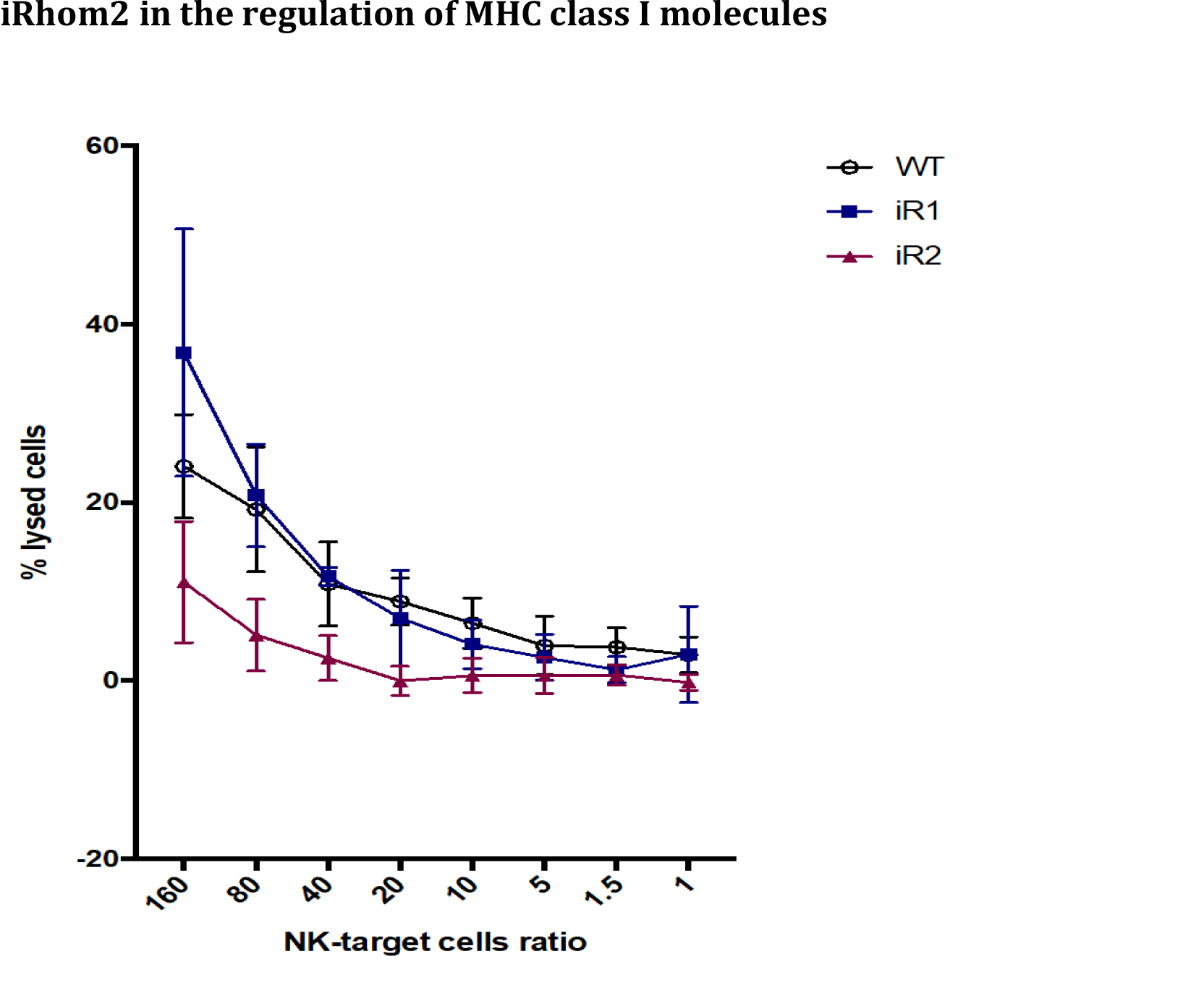
iRhom2 regulates ectodomain shedding of MHC class I molecules
Abstract
The proteolytic release of transmembrane proteins, also known as ectodomain shedding, is a post-translational modification that plays a crucial role in cell-cell communication and other biological processes. ADAM17, a member of the “disintegrin and metalloproteinase” family that was first identified as the enzyme responsible for the proteolytic cleavage of TNFα mediates ectodomain shedding of over 80 proteins, spanning from signaling molecules, such as cytokines and growth factors, to cell receptors, adhesion molecules and endocytic proteins. We established an advanced workflow for secretome analysis to identify ADAM17 substrates in a systematic manner. This approach allowed the identification of 24 potentially novel substrates of ADAM17, including the major histocompatibility complex (MHC) class I molecules. MHC-I molecules play a crucial role in presenting oncogene- and virus-derived antigens to cytotoxic limphocytes (CTLs) and natural killer cells (NKs). In addition, we found that iRhom2, which is an essential regulator of ADAM17, also regulates shedding of MHC class I molecules (H2-D1 in mouse) and their surface levels. Understanding the functional consequences in immunity of the regulation of MHC class I molecules by
Impact:
iRhom2 was first described as essential regulator of ADAM17, a protease with a key role in immunity for its ability to release TNF. Our results show an additional major role of iRhom2 in immunity, which is regulating the ectodomain shedding of MHC class I molecules, which are crucial proteins in immune responses in that they present peptide antigens to immune cells. It is clear that this research may contribute to enlarge our knowledge about iRhoms and their functions in immunity. In addition, the proteomic method that we have developed can be applied to investigate proteins that get sequestered by the extracellular matrix, including growth factors and chemokines, which are difficult to investigate by standard methods for secretome analysis.
Pipeline
-
CLINICAL
NEED -
DISEASES
ANALYSIS - DISCOVERY
-
PRECLINICAL
VALIDATION -
PRECLINICAL
DEVELOPMENT -
CLINICAL
STUDIES

Principal Investigator
Contact
Therapeutic Areas:
Product:
Drugs and Biologics
Collaborations:
- German Center for Neurodegenerative Diseases (DZNE), Monaco, Germania
- Weill Cornell Medicine Graduate School of Medical Sciences, New York, Stati Uniti
Scarica il pdf del progetto
